What is supported housing?
What is supported housing?
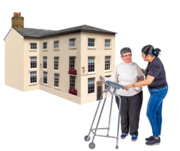
Supported housing is a home where you get help with everyday activities.
For example, getting help with:

- learning how to do jobs like cooking

- learning how to pay your bills and stay safe online

- going to the shops

- claiming benefits

- learning how to look after your garden if you have one

- making appointments like visiting the doctor or dentist

- planning how you spend your money

- going out and seeing friends and family.
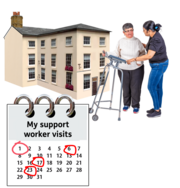
Everyone is different and has different needs.
Your needs may mean that support workers visit you a few times a week.
Or they may come in at set times of the day like in the morning or in the evening.
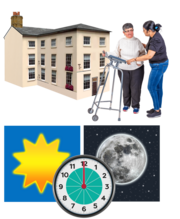
Sometimes support workers are there all the time.
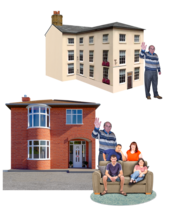
Types of supported housing
You could have:
- a room in a house that you share with other people
- a flat or a house where you live on your own.
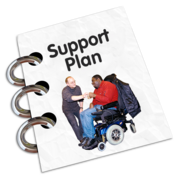
What to do if you feel that you do not get enough support
Your support plan or contract should tell you how much support you should get.
A contract is when you say yes to something and make a promise.
For example, your support plan or contract might say that you should get 15 hours support a week.
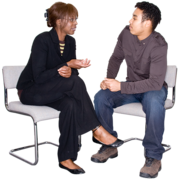
Speak to your support worker or
social worker
 A social worker is someone who can help you get the support you need. Social workers usually work for your local council.
about checking your support plan or your contract.
A social worker is someone who can help you get the support you need. Social workers usually work for your local council.
about checking your support plan or your contract.

If you’re not getting as much support as you need speak to your support worker, social worker or a trusted friend.

They could help you:
- get more support
- or find housing with more support.

How to find supported housing
You can ask your local council about supported housing in your area.

Social workers can often help with finding supported housing.

Or you can ask a family member or someone you trust to get this information from your local council.

Find your local council on the government website.

What to do if you do not get on with people you live with

If you cannot afford to pay rent
It can be worrying if you do not have enough money to pay rent.
You might be able to get benefits to help pay your rent.
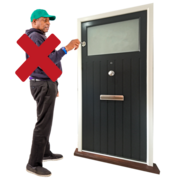
What to do if your landlord wants you to leave
Your landlord cannot just change the locks.

Speak to your support worker, social worker or a family member as soon as you are told to leave.

Most people:
- should get a notice to leave in writing

- should get a notice that is at least 28 days long

- do not have to leave until the court tells them to move out.

A notice is a letter your landlord gives you if they want you to leave.
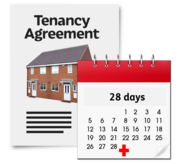
The notice might have to be longer than 28 days if you have a tenancy agreement.
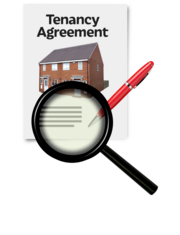
Check your tenancy agreement for information about your notice.

Call the
Learning Disability
 A learning disability is to do with the way someone's brain works. It makes it harder for someone to learn, understand or do things.
Helpline on 0808 808 1111 for more advice.
A learning disability is to do with the way someone's brain works. It makes it harder for someone to learn, understand or do things.
Helpline on 0808 808 1111 for more advice.
